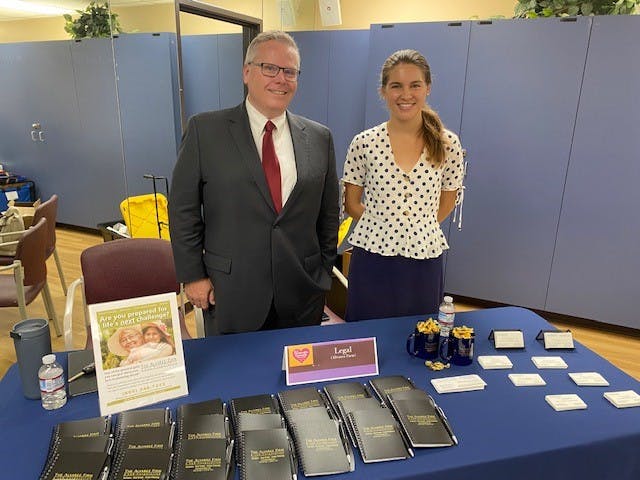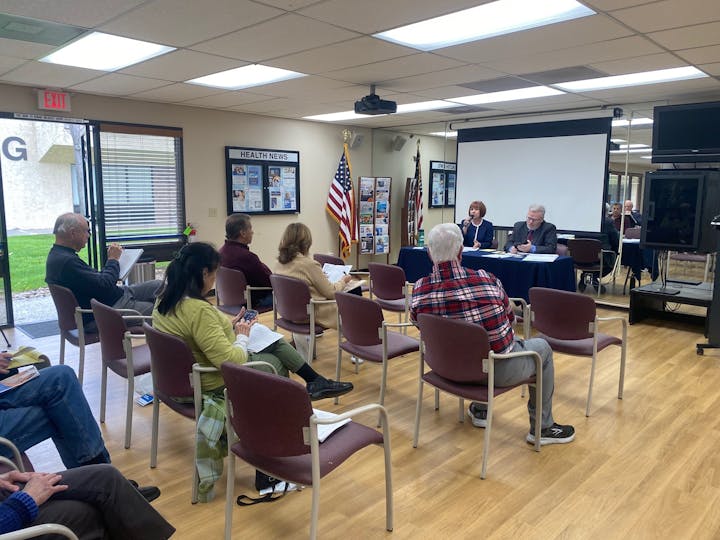Scam Alerts
We can all fall victim to a scam. Education is the key!
The Camarillo Health Care District works diligently to provide information, education, and resources on a variety of topics. This new SCAM ALERT column will offer information on how to recognize and avoid being scammed.
The number and type of scams can seem endless, and most experts agree that scams and scammers have two main goals…to steal your money and/or your identity. There are phone call scams, website scams, health care scams, AI voice-cloning scams, grandparent-“child is in danger” scam, “you’ve won the lottery” scams, dating scams, mail fraud, your Netflix account has been cancelled, car warranty scams, your computer needs updating scams…it goes on and on.
Experts also agree that it’s very frightening and can leave people feeling vulnerable and unsure. There are many “how to” lists to avoid being scammed, but it requires self-discipline and rigid adherence. Here are a just a few common ideas that can help you prepare and be aware:
· Do not open email from people you don’t know. Simply don’t click or open it.
· Be careful clicking on links or new website addresses. Malicious website addresses appear almost identical to legitimate ones. A very slight variation is used to trick you. These links can also appear to come from “friends” whose email has been unknowingly compromised.
· Don’t give out your personal information, either on the phone or over the internet, without confirming the site is secure.
· Use strong passwords and don’t share them.
· Keep your software updated. That way you will KNOW that you don’t need to click on that warning notice about your computer.
· Don’t answer your phone if you don’t know who it is. Let them leave a message. That is perfectly acceptable.
· Don’t engage. If you find yourself on a phone call and getting uncomfortable, simply hang up. If you find yourself having clicked some links on your computer and getting “lost” or uncomfortable with the “questions” being asked, turn your computer off.
It’s not rude to hang up right in the middle of a conversation! Practice hanging up on your friends and family! Sort of not kidding. You can ask friends and family to help you practice, and then make hanging up in the middle of a conversation become an “okay” thing to do, in case you need to do it someday. HANG UP!
So, with all of that said, the focus of the column for this issue of the Healthy Attitudes magazine is health care scams and health care fraud. The FBI’s website at www.fbi.gov/investigate.com, states that the FBI is the primary agency for investigating health care fraud for both federal and private insurance programs, and does so in partnership with many different federal, state and local agencies.
Health care fraud can affect almost anyone and can cause billions of dollars in losses each year, resulting in increased health insurance premiums, exposure to unnecessary medical procedures and increased taxes. Health care fraud can be committed by medical providers, patients, and others who intentionally deceive the health care system to receive unlawful benefits or payments. The FBI website offers several lists in different categories on their website, and here is just one brief excerpt:
Types of Fraud Committed by Medical Providers
· Double billing: Submitting multiple claims for the same service. Watch your medical bills closely!
· Phantom billing: Billing for a service visit or supplies the patient never received. Watch your medical bills closely!
· Unbundling: Submitting multiple bills for the same service. Watch your medical bills closely!
· Upcoding: Billing for a more expensive service than the patient received. Watch your medical bills closely!
Avoid Health Care Fraud
It goes without saying that no one wants to be scammed or defrauded. Keep these tips in mind!
· Protect your health insurance information. Treat it like a credit card. Don't give it to others to use and be mindful when using it at the doctor’s office or pharmacy.
· Beware of “free” services. If you're asked to provide your health insurance information for a “free” service, the service is probably not free and could be fraudulently charged to your insurance company.
· Check your Explanation of Benefits (EOB) regularly. Make sure the dates, locations, and services billed match what you received. If there’s a concern, contact your health insurance provider.
Watch out for fake IRS calls
Did you know that there has been an alarming rise in scams targeting individuals, especially seniors, pretending to be from the Internal Revenue Service (IRS)? Remember: The IRS primarily communicates with taxpayers through traditional mail, not unsolicited phone calls, emails, or text messages. Be wary of unexpected calls claiming to be from the IRS. Scammers often use aggressive language and threats to create a sense of urgency. Scammers may use intimidation tactics, such as threatening arrest or legal action, to pressure you into complying. The IRS does not operate in this manner. If in doubt, hang up and call the IRS directly using an official number.
What to Do If You Suspect a Scam:
• Hang Up: If you receive a suspicious call, hang up immediately. Do not engage with the caller.
• Report: Report the incident to the Treasury Inspector General for Tax Administration (TIGTA) at 1-800-366-4484 or through their website (www.treasury.gov/tigta).
• Educate Others: Share this information with friends and family to help protect them from falling victim to scams.
Scam Prevention Tip Courtesy of Ventura County District Attorney’s Office
If the offer sounds too good to be true, beware!
Here’s how scams work:
You get a call, email, text, or message on social media that looks like it’s from a business you know. It says there’s a problem with your account, or you won a prize. It tells you to call a number or click a link.
But the message isn’t really from a familiar business, it’s from a scammer. If you call, they’ll tell you to send payment or give personal information. They’ll say you must pay with gift cards, cryptocurrency, or by wiring money, which no honest business will do. Or they’ll ask for your Social Security number or access to your computer.
But it was never really that business contacting you, there wasn’t a problem, and there was never a prize.
Here’s what to do:
Stop. If you get an unexpected call, email, text, or message on social media — even if it looks like it’s from a business you know — don’t click any links. And don’t call phone numbers they give you. These are often scams.
Pass this information on to a friend. You may not have gotten one of these messages, but chances are, you know someone who has.
Scam Prevention Tip courtesy of Ventura County District Attorney’s Office








